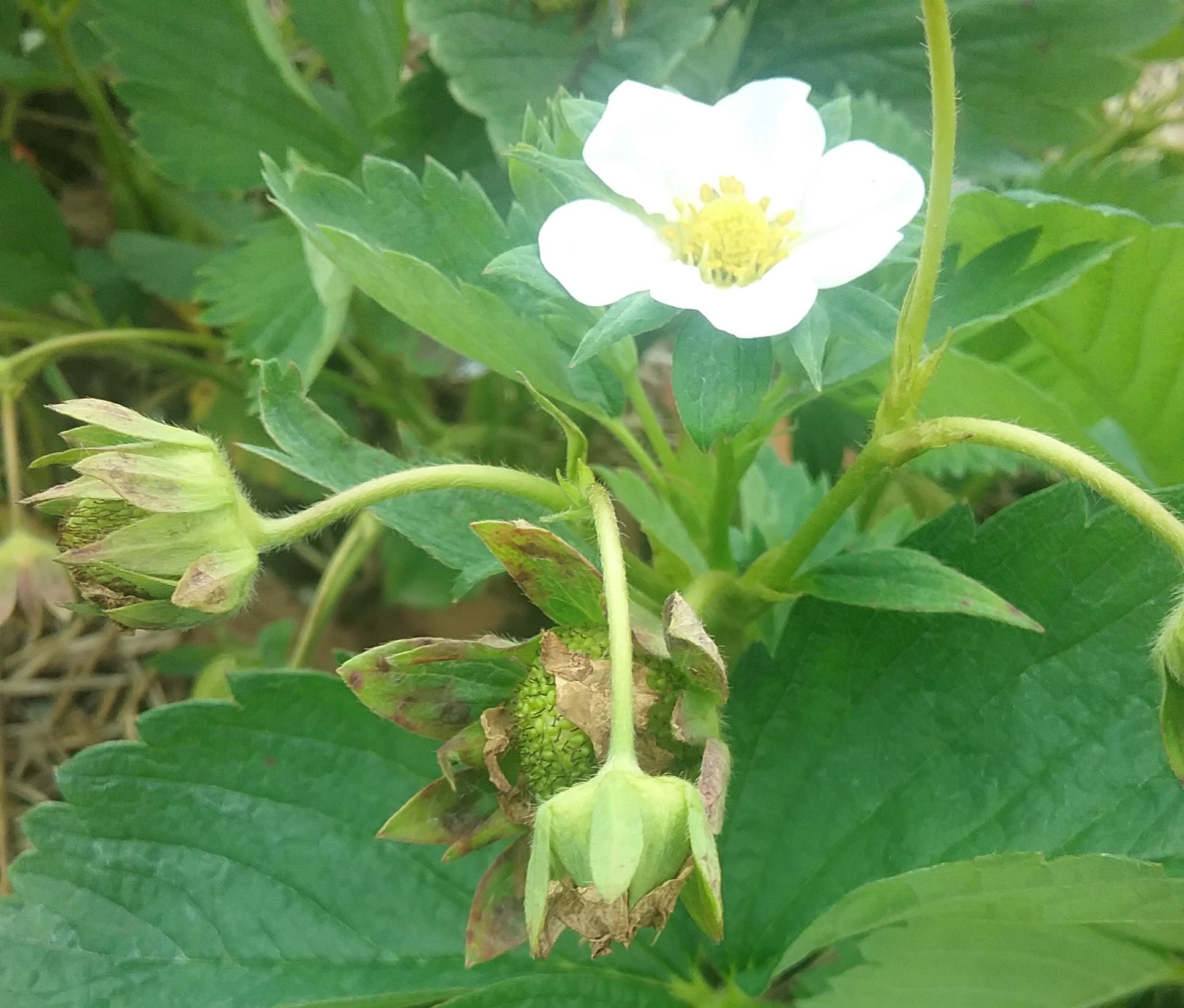West central Michigan small fruit update – June 12, 2018
The fruit growing season continues without major incidents. Winter injury to blueberries and strawberries is showing up in most fields, especially inland, away from Lake Michigan shores.

Current weather conditions in west central Michigan have been cool with maximum temperatures ranging from the upper sixties to the lows eighties. Over the past seven days, there have been some rain showers that produced less than one inch of rain in Ottawa County, but up to two inches of rain in Allegan County.
On average, minimum daily temperatures were 57°F and the maximum averaged 76°F. These conditions differed from the previous week when daily maximum temperatures reached the lower nineties. Good weather conditions provided enough growing degree-days to advance fruit ripening in strawberry fields in west central Michigan.
The strawberry harvest started last week. Fruit quality is good, but fruits are small. Temperatures during February, March and April affected king flowers, the ones that produce the largest fruits. Analyzing the weather records for the month of April, we observed several weeks when the minimum temperatures remained below the freezing point in west central Michigan. For example, around Hudsonville, Michigan, on April 29 and 30, the minimum temperatures were between 22 and 27°F. These temperatures had a significant impact on strawberries that were unprotected. So, even though the crop looks good, the size and volume will be affected.
Symptoms of frost injury are visible in all fields (see photos). No insect damage has been reported so far, although some trips are present in most fields.

Strawberry fruits and flower. Note the frost damage on the fruit sepals.
All blueberry fields are in the green fruit stage. As the season progresses, the impact of late winter temperatures is showing more and more. Blueberry fields near Muskegon, Michigan, are showing winter damage similar to the one observed near West Olive-Nunica, Michigan. Bluecrop and Elliott are showing the most damage. Shoots look like they will have plenty of fruit but no leaves. As the season progresses, the fruit in those canes will not reach maturity. Since none of these fruits will reach maturity, prune damaged shoots now that they are easy to spot.
Mummy berry shoot strike is visible in some fields in Allegan and Ottawa counties. Damage is more prevalent in fields with a history of mummy berry or near unattended fields. At this time, it is necessary to apply the appropriate fungicides to prevent cankers later on in the season. This is a potential problem in fields showing winter injury. It is not uncommon to observe cane collapse once the summer temperatures start reaching the lower 90s. For recommended fungicide and doses, check the “2018 Michigan Fruit Management Guide," Michigan State University Extension bulletin E154.
Fruitworms continue emerging with cranberry fruitworm still emerging in large numbers with a flight peak occurring over the weekend in Allegan County. Be alert against fruitworm damage, especially if sprays were delayed due to bad weather or bad field conditions making it impossible to apply the last insecticide application against fruitworms.
2018 Systems Approach to Manage Spotted Wing Drosophila (SWD): IPM Training for Berry Growers
On Friday, June 15, we will conduct the first SWD workshop for berry growers. The “2018 Systems Approach to Manage the Spotted Wing Drosophila (SWD): Training for Berry Growers” workshop will be 1 to 5 p.m. at the Trevor Nichols Research Center, 6237 124th Avenue, Fennville, MI 49408.
Growers are invited to attend even though they may have already attended one or more trainings in the past. This new training will provide new information to help upgrade your IPM skills to manage SWD during the upcoming pre-harvest season.
There is a $25 fee for this meeting, which includes materials and refreshments. Register online now and view the agenda. There will be four RUP recertification for attending this training.



 Print
Print Email
Email




